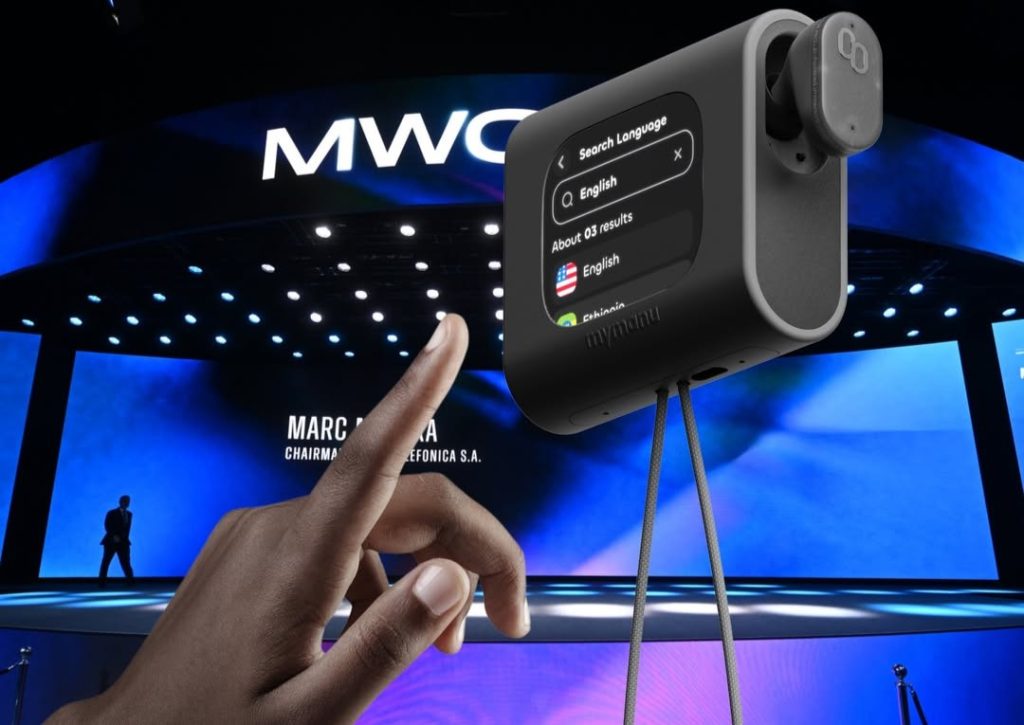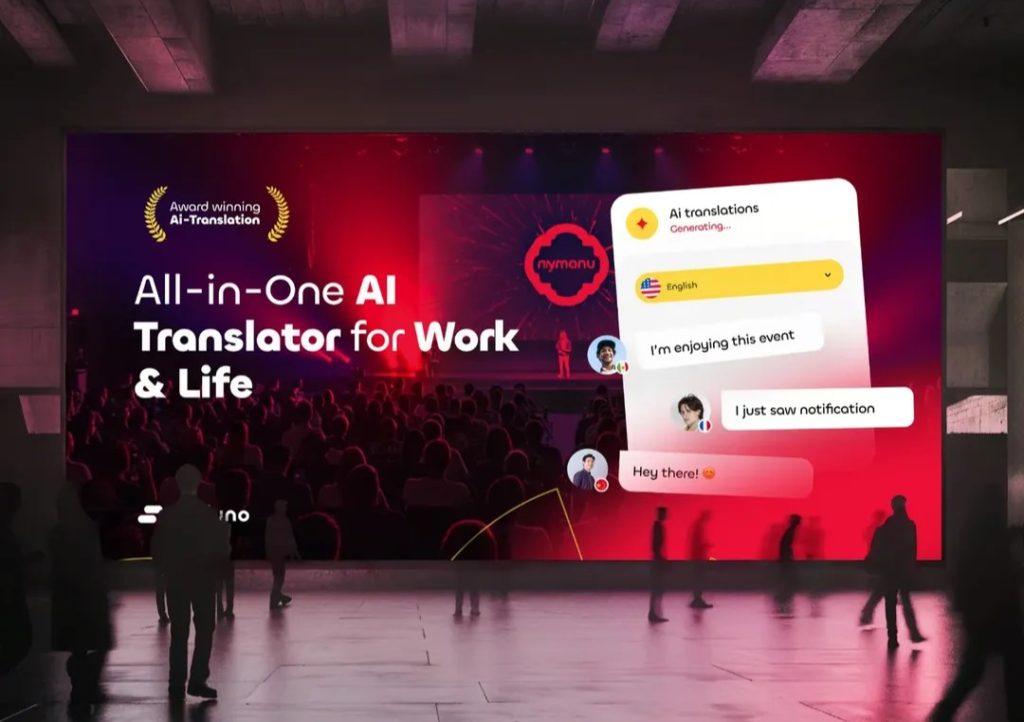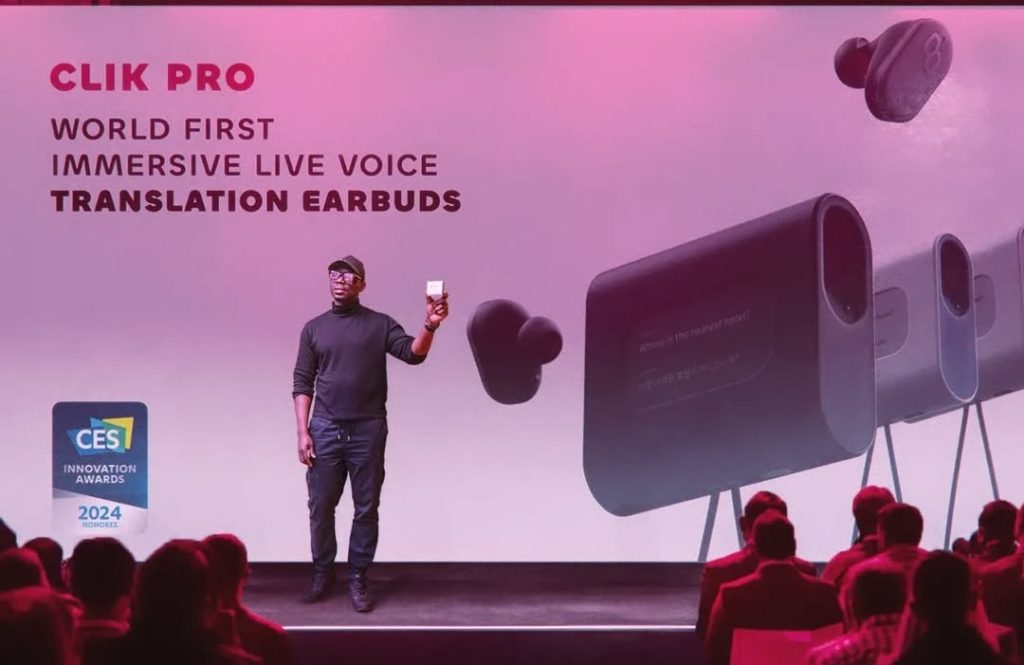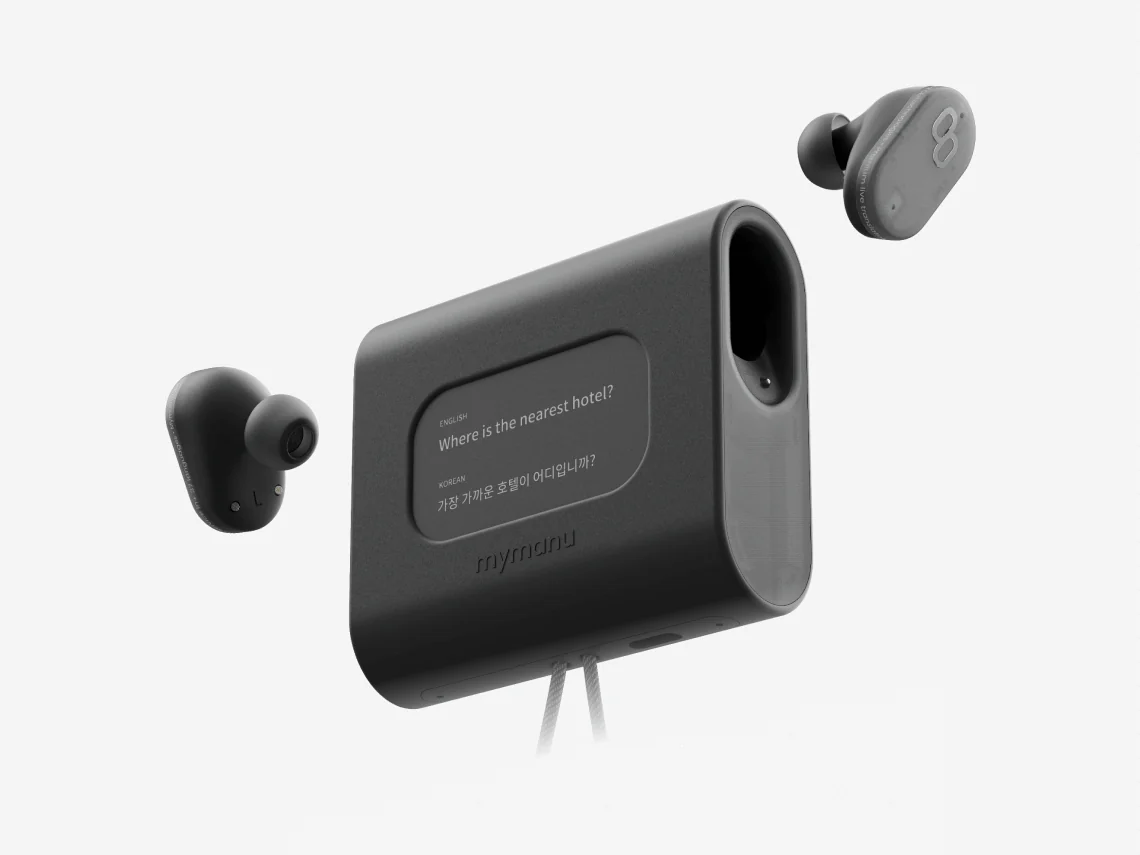Your cart is currently empty!
A 27-Year-Old Ghanaian Inventor Created Earbuds That Translate Over 40 Languages

Have you ever tried to hold a conversation through a wall? You hear the sound, maybe catch a few words but the meaning never quite makes it through. That’s what speaking across a language barrier can feel like: close enough to connect, yet far enough to miss each other completely.
Now imagine slipping in a pair of earbuds and, in real time, hearing someone’s words not just translated, but understood clear, immediate, natural. No pauses. No apps. No awkward detours through your screen. Just two humans, talking.
That’s not science fiction. It’s the quiet revolution engineered by 27-year-old British-Ghanaian inventor Danny Manu. His wireless earbuds, capable of translating over 40 languages even offline are turning ordinary conversations into global bridges. What began as a deeply personal mission is now reshaping how we travel, learn, do business, and connect across cultures.
Redefining Translation through Technology

Most of us are familiar with translation tools tucked inside our phones Google Translate, Microsoft Translator, or the built-in language features on travel apps. They’re helpful in a pinch but often clunky in real life: switching between screens, waiting for responses, struggling with accents or network errors. The result feels transactional, not conversational.
Danny Manu’s Mymanu earbuds challenge this entire model. Instead of requiring users to pause, type, or stare at a screen, these earbuds allow for natural, spoken dialogue across languages. The technology translates over 40 languages in real time, using voice recognition and AI-powered processing, all built into a compact, wireless form that mirrors mainstream earbuds in comfort and design.

What makes Mymanu especially notable is not just what it does, but how it does it. Unlike most translation apps that rely on the cloud and require a stable internet connection, Mymanu Clik S and its more advanced successor, the Mymanu Titan operate offline. The earbuds carry their own onboard translation engine, allowing users to communicate even in remote areas, during international travel, or in emergencies where Wi-Fi is unavailable.
This isn’t just a technical upgrade it’s a behavioral one. Translation is no longer an interruption; it becomes part of the rhythm of conversation. The Titan model, with eSIM integration and voice control, takes it even further. It essentially turns the earbuds into a screen-free communication device: users can make calls, send messages, and interact hands-free, without needing a phone nearby.
Danny Manu’s Journey

Behind every significant innovation is a personal story. For Danny Manu, the journey to creating Mymanu was shaped by his identity as a British-Ghanaian, his training as an engineer, and his resilience against systemic obstacles. Growing up between cultures gave him a firsthand understanding of the nuances that can get lost in translation, a perspective that would become the foundation of his work.
Manu’s path began not in translation, but with a different question of human-device interaction after his daughter dropped a phone in a bathtub. This led to his first invention: water-resistant Bluetooth speakers. However, his ambition soon pivoted toward a more profound challenge—the universal barrier of language. With a background in aerospace and cloud solutions, he possessed the technical expertise, but it was his personal drive to foster connection that fueled the concept for Mymanu.

Despite having a validated concept and a strong engineering background, Manu’s path was fraught with challenges. He faced repeated rejections from traditional funding sources, a common experience for Black entrepreneurs in the UK, who historically receive a fraction of venture capital funding. Research highlights this disparity, with one 2022 report showing that 92% of angel investments in the UK went to all-white founding teams. Undeterred by what he identified as racial bias, Manu turned directly to the people. He launched crowdfunding campaigns on Kickstarter and Indiegogo, raising over $5 million. This success was more than financial; it was a powerful public validation of his vision.
This tenacity is a hallmark of Manu’s career. When the COVID-19 pandemic created an urgent global need, he pivoted to establish Medybird, a company that successfully supplied hundreds of millions of units of personal protective equipment. Whether developing translation technology or delivering medical supplies, his work is consistently guided by a clear principle: to identify a fundamental human need and build a solution with empathy and resolve.
Where This Tech Makes a Difference

The true measure of an invention is not its technical specifications, but its impact on human lives. Mymanu’s translation technology moves beyond convenience to become a critical tool for access and safety in vital sectors.
- In Healthcare: Clear communication can be a matter of life and death. Studies have shown that language barriers in healthcare can lead to detectable physical harm. Mymanu’s earbuds offer a powerful solution. In an emergency room, a paramedic can instantly understand a patient’s symptoms without waiting for an interpreter. In a rural clinic without reliable internet, a doctor can clearly explain a diagnosis or treatment plan in a patient’s native tongue, ensuring understanding and improving outcomes. For humanitarian aid workers in disaster zones, the offline capability is invaluable for coordinating relief efforts safely and effectively.
- In Education: For international students or children in multilingual households, the classroom can be an isolating place. This technology fosters inclusivity by allowing educators to communicate directly with every student in real time. It empowers students to participate confidently, ask questions, and collaborate with peers, regardless of their primary language. This is especially transformative for vocational training programs in remote areas, where access to specialized instruction is no longer limited by language.
- In Global Business: The technology also acts as a powerful equalizer in international commerce. It allows entrepreneurs and professionals to negotiate contracts, pitch ideas, and build client relationships with greater confidence and authenticity. An artisan in Nairobi can communicate their vision directly to a buyer in Paris, or a small business owner in Manila can negotiate terms with a supplier in Seoul. By removing the need for costly interpreters and the delays of app-based translations, it fosters smoother, more personal, and ultimately more effective business relationships.
For travelers and daily life, the earbuds remove the anxiety that often accompanies navigating a foreign country. By enabling spontaneous conversations—whether ordering food, asking for directions, or simply connecting with a local—the technology replaces hesitation with the quiet confidence of knowing you will be understood.
The New Language of Innovation
Danny Manu’s work does more than introduce a sophisticated piece of technology; it challenges the very blueprint of modern innovation. For decades, the narrative has been dominated by specific geographies and demographics, often excluding innovators of color. In the UK tech sector, for instance, only 4% of the workforce identifies as Black, and the funding disparities are stark. Manu’s journey, built on crowdfunding after facing systemic barriers, demonstrates that groundbreaking ideas are not confined to traditional corridors of power. His success sends a powerful message to a new generation of creators, particularly those from African and diasporic communities: your lived experiences are the source of world-changing solutions.
At its core, Mymanu is engineered around a profound human need: to be truly understood. There is a fundamental difference between simply decoding words and grasping the intent, emotion, and dignity of the person speaking. By facilitating seamless, real-time conversation, the technology moves beyond mere translation to enable genuine empathy. It returns agency to the speaker, allowing them to communicate in their own voice and cadence without the interruption of a screen. This is technology that fosters presence rather than distraction, strengthening the human-to-human connection.
Ultimately, Mymanu prompts us to ask a larger question: What is the true purpose of the technology we create? In a world that often feels fractured, innovation can either deepen the divides or help to bridge them. Danny Manu’s work is a clear vote for the latter. It is a reminder that the most powerful advancements are not just about algorithms and processing speeds, but about fostering understanding, restoring dignity, and bringing people closer. The future of innovation lies not in creating more noise, but in learning to listen better. The real breakthrough, then, isn’t just hearing words in a different language; it’s finally, truly hearing the person behind them.
Featured Image Source: Website @MyManu
